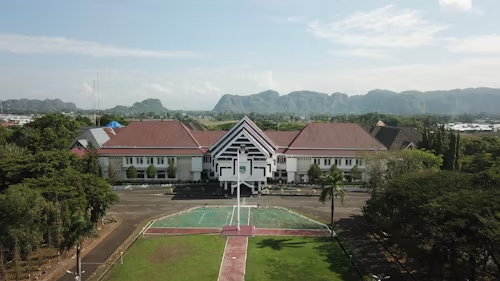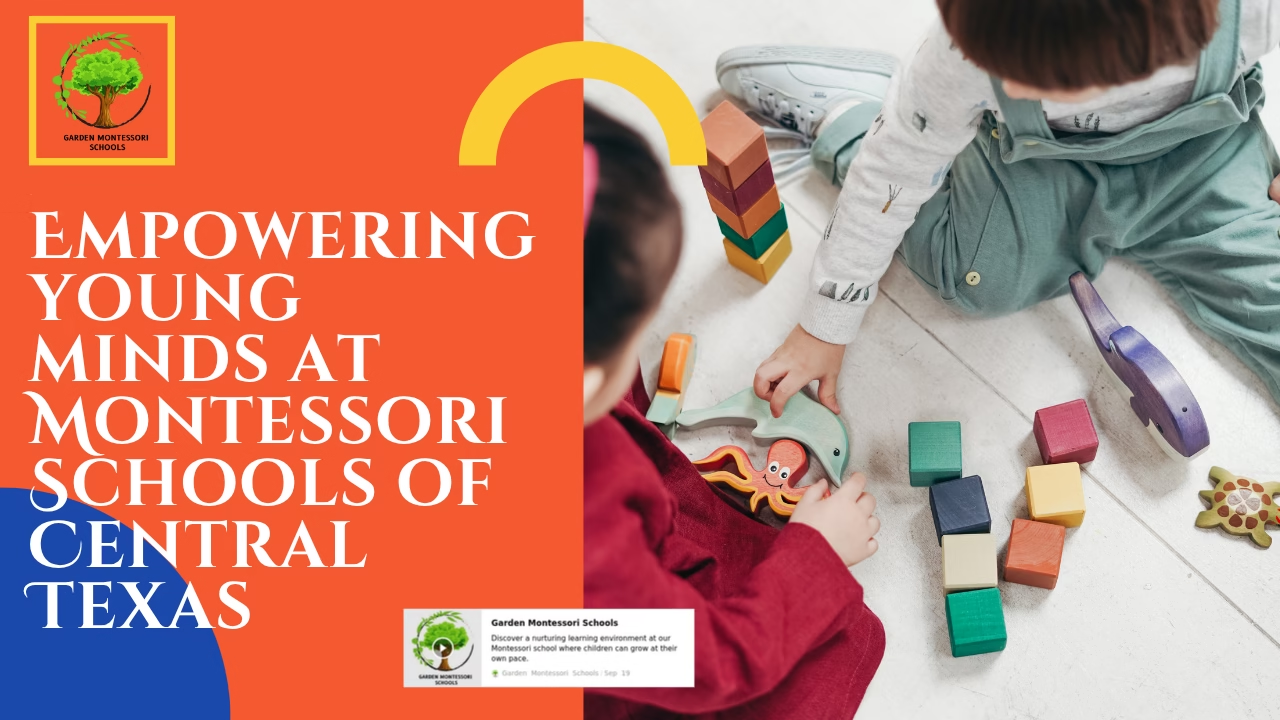Both have different ways of attaining learning, but their core ideologies, means to lesson delivery and the end result are completely different. This blog outlines some main and fundamental differences between these two systems of education, thus allowing you to make a wise decision regarding the education of your child.
Why Montessori Empowers 6-7 Year Olds with Self-Regulation Skills?
Montessori instruction encourages tailored instruction for every pupil depending upon their grade and particular area of competency. In a Montessori setting, children have all the opportunities to engage into activities that they find interesting and not only learn the activities but inspire them.
The view that every school has the same curriculum is popular around the world but in Montessori schools it is quite different – it is based on the self-directed approach. It gives them the sense of direction and critical thinking at an early age of life.
In stark contrast with methods of education providing a standard of learning, traditional education is usually supported by all alike. As an example, classes are taught with an aim of going through certain topics with every student grasping every part of that same topic. While this is an effective way of doing things it ensures that every student is put as one piece.
Additionally, it shows students who may struggle or require more advanced tasks to flourish are unfortunately ignored. This is in contradiction with the Montessori education methods which endorse special consideration for each child to help realise their utmost potential talents.
How Montessori and Traditional Education Differ: Key Insights?
Unlike traditional classrooms, Montessori schools rely on a completely different teaching approach. Rather than being the ones who lead the learning sessions, as in the case of traditional learning, Montessori teachers help facilitate a child’s memory and active involvement through sensorimotor activities.
In this way, children use and learn these specific materials which are intended for different developmental phases. There is also an aspect of being actively involved and knowing the concept extensively and thoroughly too.
Montessori methods or child-centered methods are the exact opposite of traditional education. For instance, Elementary education hardly involves a textbook or an individual instructor-centered pedagogy. Such an approach lacks creativity or abstract concepts since the major aim is rote memory and correspondence testing.
Students are intended to work in groups and listen to their teacher. The advantage of this approach is that it is properly planned, whereas it also does not allow children to learn how to solve problems and try new things without being told to do so.
Why Do Classrooms Differ?
More than furnishings and decor, the relationship between children and classroom environments plays a vital role in the child’s overall learning. Calmness, orderliness, and a sense of invitation are key components of the Montessori approach. They have multi-age grouping to promote interaction and working together.
Materials are placed within reach of students to allow them to be independent and make choices. The children are provided with freedom with limits and at the same time learn how to be responsible.
In a typical classroom, the ambiance is more often than not, more structured. The furniture (typically) desks are arranged in long rows and pupils have to stick to their time tables. A lesson is teacher-dominated where the students are mere receptors of information.
There is a uniformity that is exciting for the school administration but does not allow students to learn to socialise or be leaders in group work because there is limited peer interaction. It is the opposite with Montessori classrooms where an enabling environment is created for all round growth of children.
What Life Skills do Montessori Schools Encourage?
There is more focus on cosmopolitan skills in addition to academic work in a Montessori setup. Cooking, cleaning and other such tasks fall under practical scenarios and forms part of the learning process. With these activities, students understand the importance of responsibility, time management and being able to find solutions to work-related problems.
It is often the case that in education systems, let’s say Western, there is a stronger focus on courses as opposed to other aspects of life. However, once these students who have worked so hard to get great grades in mathematics and physics enter real life, their life becomes tough since they have no experience in practical situations.
On the other hand, Montessori schools aim to produce well cultured and educated individuals as they address this issue by including the movement towards activities in the classroom and as a result – developing students’ aspirations for academics as well as personal achievements.
Why Not Appreciate Participation In Group Work?
Participation in group work requires students to communicate with their classmates and is therefore valued differently among Montessori vs traditional schools. Group projects and student to student mentoring are encouraged activities in the Montessori environment.
Moreover, the multi-age classroom set up enables the older students to care for the younger students, promoting togetherness. This helps in the improvement of children’s social and emotional well-being.
In other words, there are limitations in traditional education since children are oftentimes forced to interact with students their own age. This might build a sense of belonging but at the same time this would limit the number of world views the student interacts with.
Also in some instances, the competitiveness in traditional education dampens cooperation and teamwork. Therefore, with Montessori, there is a greater focus on social inclusivity and this in turn helps children to better succeed in their adult lives.
How do Montessori schools emphasize the benefits of a Montessori education?
It is conclusively seen that the benefits of Montessori education are seen in the all-round growth of children. Children’s all rounded growth means the emotional, social and physical development of the child including the academics.
This integrated approach provides the confidence to students which they need to face the world and life after school. Typically, graduates from Montessori schools are problem solvers, adaptable, and lifelong learners.
While traditional education bestows fundamental knowledge to students, it oftentimes is not enough to meet other important areas of development. Placing too much emphasis on test scores and prescribed curricula can be restrictive in terms of self-expression and development.
In comparison, offering a Montessori education allows for independence in learning whilst providing the tools necessary to facilitate a love for learning for years to come.
Conclusion:
Why is it important to demystify the differences that exist between traditional education and Montessori education? It is critical in making the right decision with respect to your child. Montessori education is personalized and practical which is in stark contrast with traditional education which is formal and cadenced.
At Garden Montessori Schools, every child’s potential is recognized and cultivated. Get the amazing experience of transforming your expectations at a learning garden Montessori school.
FAQS For Difference Between Montessori and Traditional Education
What is the fundamental distinction between Montessori and traditional education?
The core principles of Montessori teaching are self directed, hands-on learning, while traditional classroom centers around one teacher providing direct instructions and following the established curriculum. Explore these differences at Garden Montessori Schools.
How does Montessori education yield results in the social competencies of a child?
Montessori enhances peer-to-peer bonding and empathy through peer mentorship, and team projects, thus creating a well-balanced social fabric within the environment. Learn more at Garden Montessori Schools.
Why are practical life skills built in classroom activities such a prominent feature in Montessori schools?
Practical skills are a part of the Montessori curriculum as it provides an avenue for students to learn responsibility and problem solving that is relevant in the outside world. Garden Montessori Schools will prepare the students for success.
How is the set up of a Montessori classroom different from other classrooms?
Unlike the traditional type setup which is more rigid and compartmentalized, Montessori classrooms have a softer setting that is unifying and promotes self-education. Discover our unique environment at Garden Montessori Schools.
What makes the Montessori method of teaching to be integrated?
Montessori teaching caters for the entire child – academically, socially and emotionally – enabling all-round development. This integrated method is displayed at Garden Montessori Schools.



